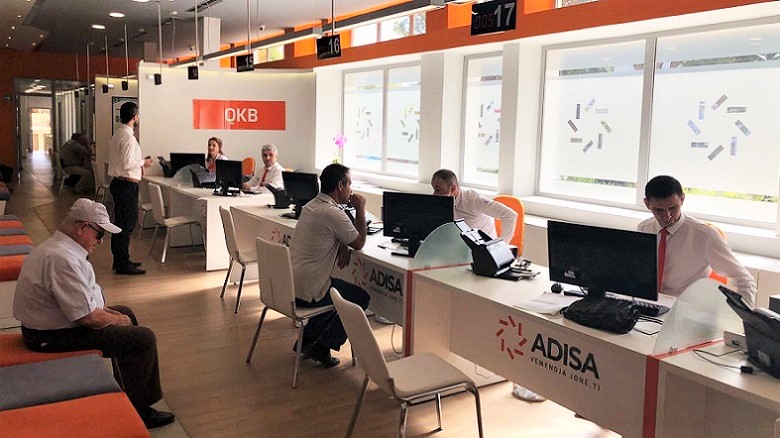From the outset, it was clear that this kind of outreach was effective. Jana Kunicova, then the project lead for the Albania Citizen-Centric Service Delivery Project, summarized it well when she wrote that “while it is clearly too early to declare success, a pattern is emerging in Albania – a substantial percentage of citizens consistently appreciate that the state is proactively reaching out to them to ask about their welfare.”
Fast forward to June, 2018 and a clear path toward success can still be seen for the project.
Throughout the long journey since the introduction of this initiative, citizens have firmly remained the focus of the project – and the results have been impressive. Several Agency of Delivery of Integrated Service Delivery in Albania (ADISA) Centers in Fier, Kavaja, Kruje, and Gjirokaster that have received co-financing from the project, are providing over 365 public services in nine central and local government institutions – offering improved services to some 800,000 people there. Among the improvements these beneficiaries are now seeing are reduced wait times, streamlined applications, enhanced transparency, and increased numbers of online services – all of which is leading to improved customer satisfaction.
“This is the best example of a project where evidence drives performance,” noted Linda Van Gelder, World Bank Country Director for the Western Balkans, following a visit to the Center for Delivering Integrated Services in in Gjirokastra, in the Southern part of the country.
Helping to ensure these improvements continue, ADISA have introduced periodic monitoring, online satisfaction surveys, and immediate follow-up for complaints, making these offices models for other government institutions. According to recent exit interviews, overall satisfaction with services provided by ADISA is 3.3 points higher than the baseline assessment conducted in 2016 – registering a 9 out of 10. Staff behavior is now perceived as exceptionally satisfying (9.6 out of 10) and clients describe employees at the centers as very polite and professional. Furthermore, the number of respondents who indicated that they were asked for a bribe fell from 7% in 2016 to just 1% today.
“Getting my health card has never been easier,” says-54 year-old Drita Kryekurti, Mirdita. “I do not have a computer and I do not know how to use one, but the lady at ADISA center assisted me in everything, and I got my health card printed out.”
Multiple channels of service offering are designed, so that people leaving in remote areas, computer illiterate, disabled, and women get access to and improved service delivery.
Several ADISA Centers across the country such as this one in Kavaja now provide improved services to around 800,000 people.
Despite these clear successes, the government is taking a long-term approach – viewing this as just one step along the road toward improved service delivery. Initiatives are underway to modernize the country’s ICT systems and web portals, implements regulatory reforms, and boost feedback mechanisms. These steps all allow the government to become even more responsive to the evolving needs and preferences of the citizens – providing a win for citizens and the government alike.


